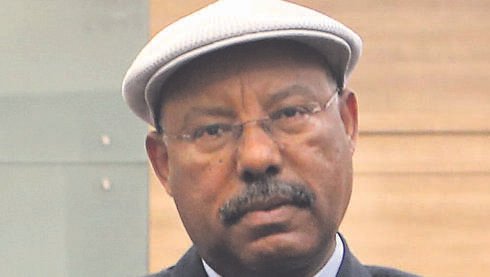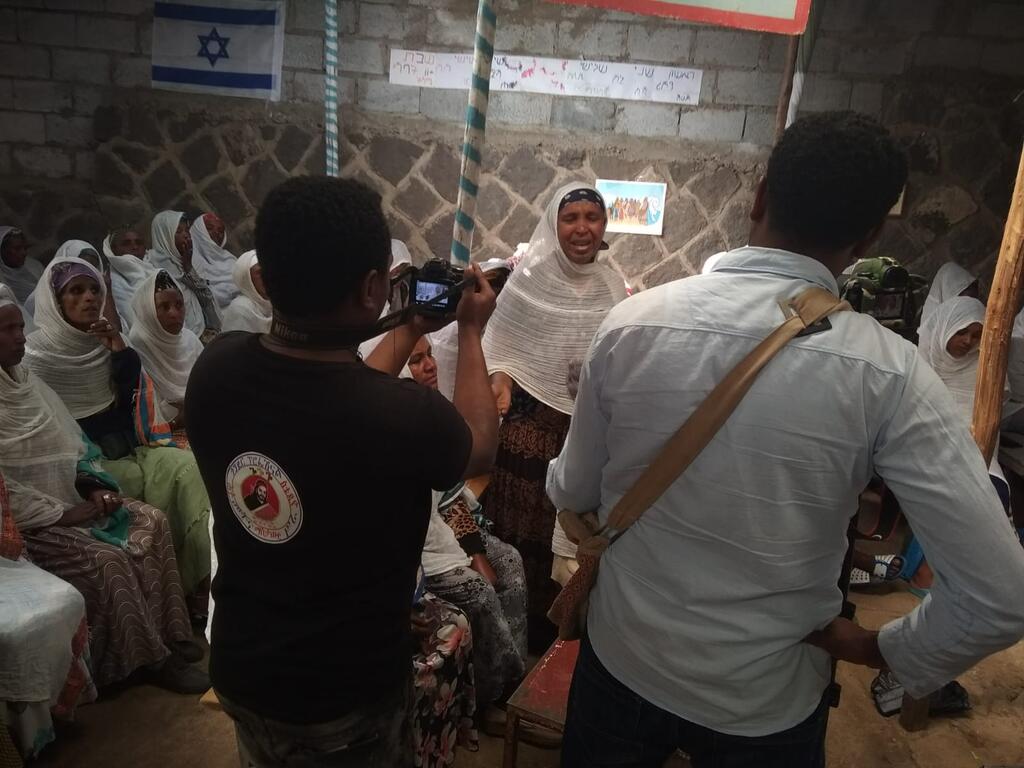Israel's ambassador to Ethiopia, Avraham Neguise, was disgracefully expelled on Monday from the African Union headquarters in Addis Ababa, after representatives of member states refused to allow him to participate in an annual meeting commemorating the victims of the Rwandan genocide. Israeli Foreign Ministry condemned the African Union for Neguise's expulsion.
In a statement, the Ministry of Foreign Affairs said: "It is outrageous that, at an event commemorating the victims of the Tutsi genocide in Rwanda, to which the Israeli ambassador in Addis Ababa was invited, the chairman of the African Union Commission from Djibouti chose to introduce anti-Israel political elements."
The ministry added: "This unacceptable behavior primarily harms the memory of the victims and reflects a fundamental lack of understanding of the history of the Rwandan and Jewish peoples. The Ministry of Foreign Affairs will take the necessary diplomatic steps with the relevant parties to express the seriousness with which we view this incident."
In July, Ethiopia approved Neguise's appointment as ambassador after delaying the approval for many months amid accusations that Neguise had defamed Ethiopia while advocating for the immigration of the Falash Mura community to Israel. Reports in Ethiopia claimed that Neguise, a former Likud Knesset member, was involved in an incident where a building in the country was set on fire in an alleged attempt to portray Ethiopia as an anti-Semitic state. In Jerusalem, officials had almost accepted that Ethiopia would reject his appointment, but the approval was eventually granted.
Origins of genocide
The Rwandan genocide, also referred to as the genocide against the Tutsi, unfolded between April 7 and July 19, 1994, during the Rwandan Civil War. Over approximately 100 days, members of the Tutsi ethnic group, alongside moderate Hutu and Twa individuals, became the target of a systematic campaign of murder carried out by Hutu militias. While Rwanda’s constitution claims the death toll exceeded one million, most scholars estimate that between 500,000 and 662,000 Tutsi—primarily men—were killed. The violence was exceptionally brutal, with many victims attacked by their own neighbors. Sexual violence was also rampant, with an estimated 250,000 to 500,000 women subjected to rape.
The genocide was deeply rooted in years of ethnic tensions, which were further fueled by the Rwandan Civil War. This conflict began in 1990 when the Tutsi-led Rwandan Patriotic Front (RPF) launched an invasion from neighboring Uganda. Although the war appeared to move toward peace with the 1993 Arusha Accords, the assassination of Rwandan President Juvénal Habyarimana on April 6, 1994, triggered a wave of violence. Hutu extremists exploited the political chaos to launch a coordinated effort to eliminate Tutsi civilians and moderate Hutu leaders.
The international community largely stood by as the genocide unfolded, failing to take meaningful action to stop the slaughter. In the face of such atrocities, RPF reignited its military campaign, gradually defeating government forces and putting an end to the genocide by seizing territory previously under government control. This victory forced the perpetrators of the genocide, along with large numbers of Hutu refugees, to flee into Zaire (present-day Democratic Republic of the Congo). The mass displacement contributed to regional instability and played a key role in sparking the First Congo War in 1996.
The genocide's impact continues to shape Rwanda today. The country has introduced national days of remembrance to honor the victims and has enacted laws to combat "genocide ideology" and the promotion of ethnic divisions. These measures aim to ensure that the lessons of the genocide are neither forgotten nor repeated.


